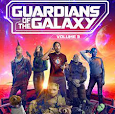It's no surprise that The Flash has bombed, although how badly it's failed is a surprise (losing to discount Spider-Man is pretty sad). Flash will still speed past a few benchmarks, as it has cleared Sony bomb Morbius as well as DC bomb Shazam 2. Will it make Dungeons & Dragons money (208)? I think so, but it's still going to be one of the biggest bombs of all time because of its ludicrous budget (officially 220, but believed to 300) and save us from Ezra Miller in the future (who also serves as a convenient scapegoat for the film, but is not the only problem). If there's a specific lesson to be learned it's that memberberries don't work without a strong foundation (either of prior success or the film itself)--while the MCU is busy destroying itself, it still has three Phases of success to reflect on (consider how long it took Star Wars to die when that franchise hasn't had a great film since 1981). The only positive for DC going forward is the film has no relevance to whatever James Gunn is planning, but it does mean Blue Beetle will likely get pulverized Shazam-style when it comes out (Aquaman 2 should do better, despite Amber Heard's inclusion).
Since Bob Iger's return, Disney has been firing people (7,000 jobs, cf) and those cuts have included several prominent folks (Susan Arnold, CFO Christine McCarthy, etc), the biggest being the firing Victoria Alonso (despite triple protection: female, Latina, and a lesbian--a win for equality as she too can get fired for incompetence). We've now had another 'name' of sorts receive similar treatment, as Chief Diversity Officer Latondra Newton (who also checks three boxes) was fired (she's supposedly behind the race swaps in The Little Mermaid and others, although I doubt Newton is the true cause of that). None of this implies a major creative shift at Disney because BlackRock is still their biggest shareholder (although others do see a change; [it is amusing to see BlackRock CEO Larry Fink giving up the label ESG now that the public is aware of it--so not the policies it advocates, but the label]). My belief is that these sacrifices are being made to point the blame at someone other than Bob Iger.
Speaking more broadly, let's take a look at recent Disney Films (estimated losses noted below are via Deadline; brackets compare it to its predecessor factoring inflation; the slash is domestic/foreign)
2022
- May - MCU Doctor Strange 2 955 (411/544) < 2016 film 826 (+129) - budget c.200
- June - Lightyear 226 (118/108) < 2019 film 1.228 (-1.002) - lost c.105 million
- July - MCU Thor 4 760 (343/417) < 2017 film 1.02 (-260) - budget c.250
- Nov - MCU Black Panther 2 859 (453/405) < 2018 film 1.573 (-714) - budget c.250
- Nov - Strange World 73 (37/35) - lost c.200 million
2023
- Feb - MCU Ant-Man 3 476 (214/261) < 2018 film 725 (-249) - budget c.200
- May - MCU Guardians 3 824 (347/476) < 2017 film 1.052 (-228) - budget c.250
- May - Little Mermaid 477 (264/213) < 1989 film 518 (-41) - budget c.250
- June - Elemental 68 (52/16) - budget c.200
None of this includes after market numbers (DVD/streaming) or toy sales, all of whose modern iterations are dwarfed by their prior predecessor (Frozen seems to be the only recent IP that still pushes merch).
As for the box office MCU trends: 955-760-859-476-822; all the films are sequels and have varying degrees of memberberries; two (Strange and Ant-Man) were heavily connected to Disney+ shows (clearly of no importance); at least three of the five MCU films were subject to emergency re-shoots (Strange, Black Panther, and Ant-Man). From these IP virtually none of the classic characters are coming back: no Guardians (or James Gunn), no Thor, etc. Of those that remain, Hulk and Hawkeye have already passed the torch to irrelevant or disliked spinoff characters. There's no positives to derive from any of this and no sign of anything good forthcoming (very much like where DC has been since 2008's The Dark Knight).
As for the non-Marvel stuff, it's been god awful. Pixar and Disney animation are completely lost, having lost an atrocious amount of money (Onward 142, Soul 121, Luca 50, and Turning Red 20, were all abysmal failures, as were Raya 130 and Encanto 256). The formula in all of them has been the much like the MCU: terrible writing with combative marketing--a rainbow coloured shit sandwich. The major difference between these projects and the MCU above (given that the quality and approach is similar), is because of its continuity, the MCU has a lot of goodwill to carryover from prior efforts, whereas these fresh IP have to stand on their own. The corporate media has finally started to say 'no' to some of this, but in a very limited, tepid way (they gave Willow a free pass), looking for technical excuses rather than the turgid base of this garbage. I don't see how Disney can change at this point, but I do think they will make things cheaper.
Back to Marvel, Namor star Tenoch Huerta has now been accused of sexual assault. This hasn't gone to court, so we don't know what's happened. However, unlike with Kang, this isn't a big deal for the MCU, as Black Panther 2 disappointed and no one was clamouring for more Namor anyway. They can easily recast the character (they probably should have regardless) and move on.
This article was written by Peter Levi





















